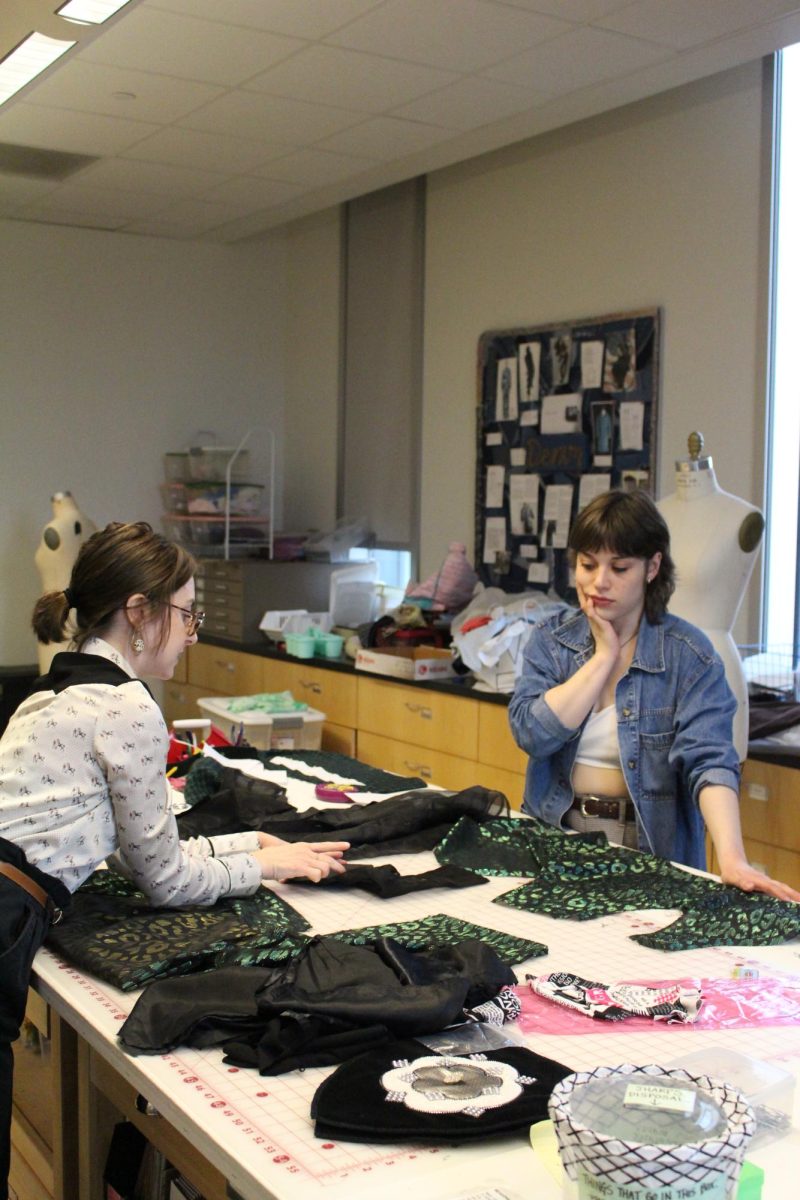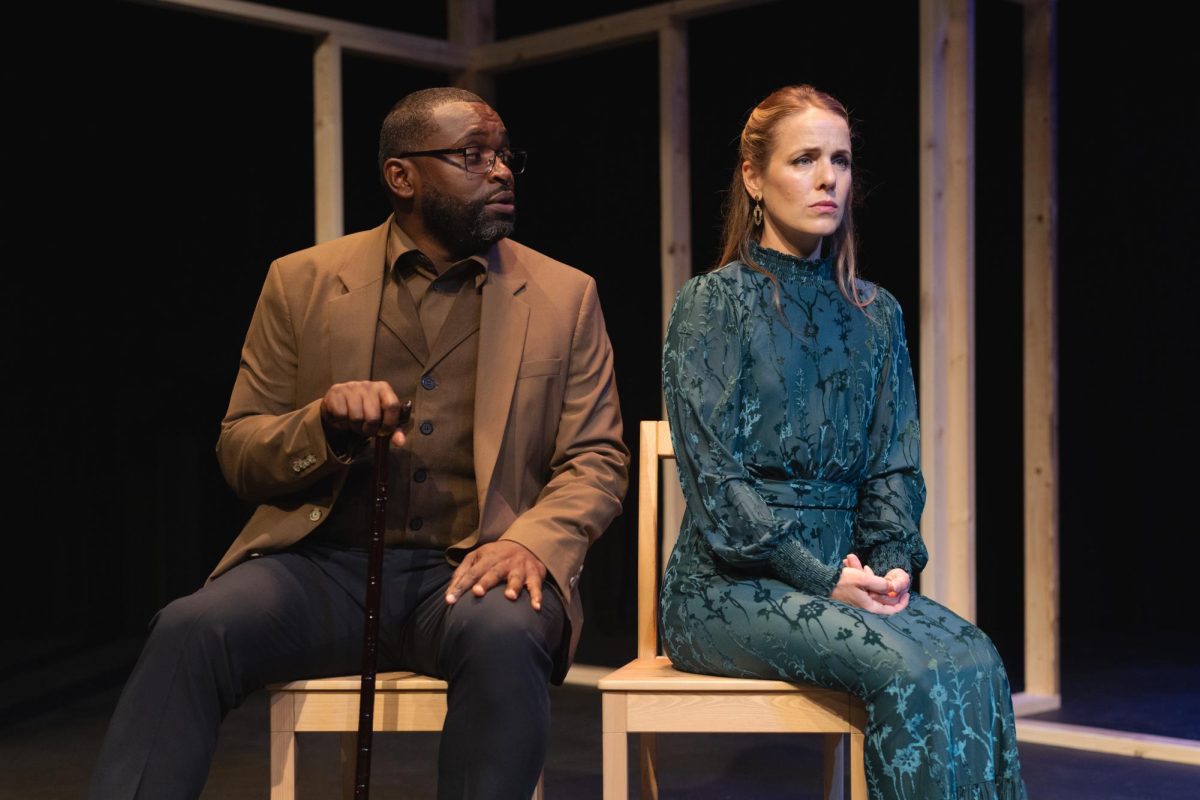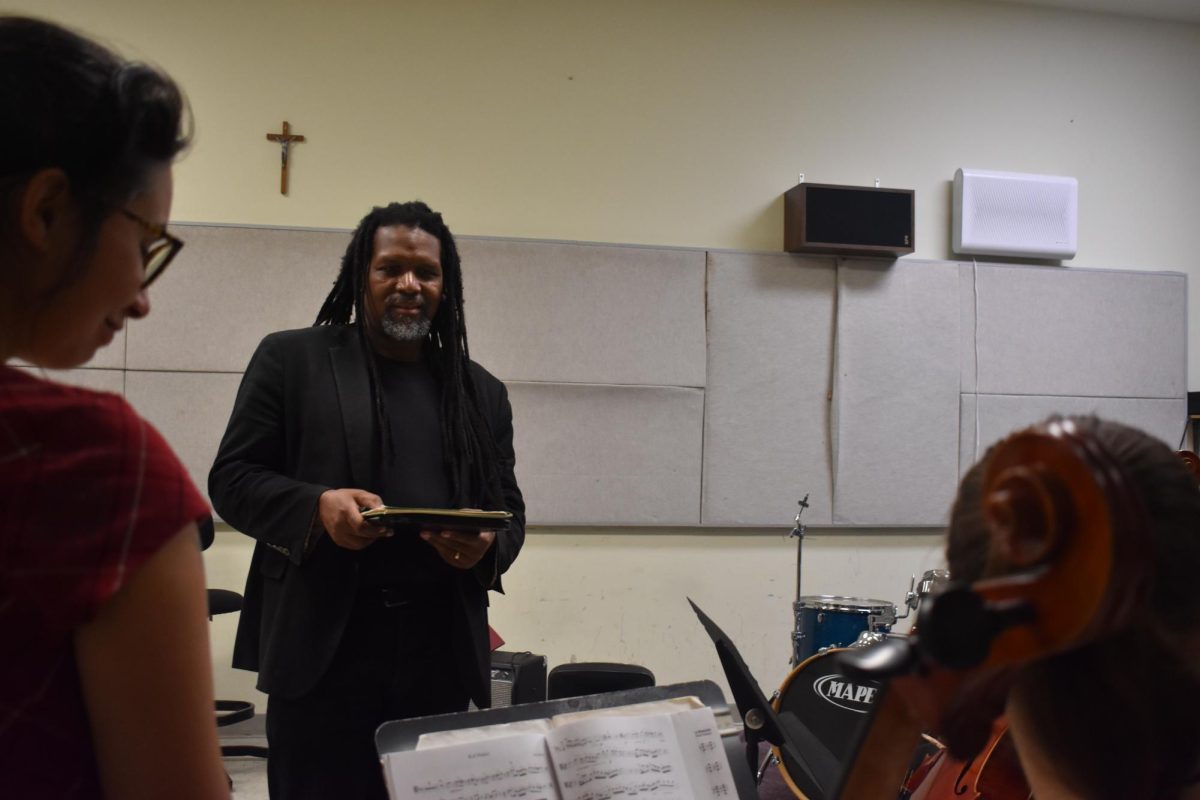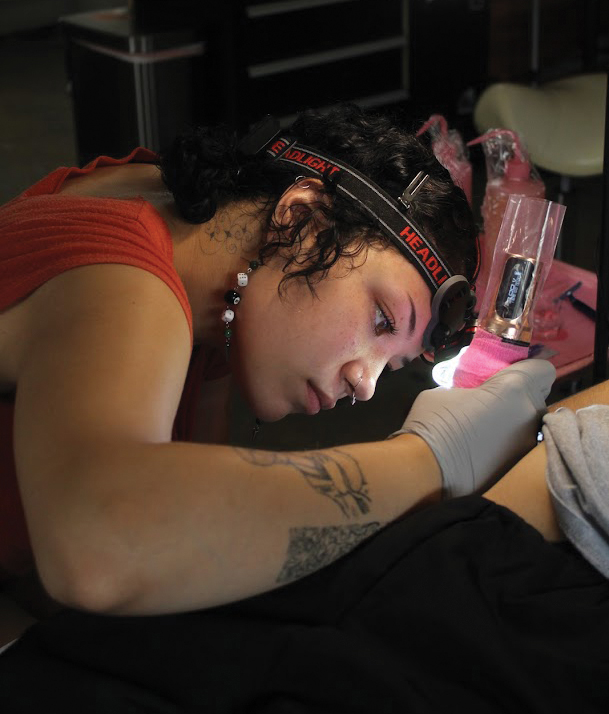While sewing, cutting, and constructing the theater department’s custom wardrobe, the crew behind the Loyola Costume Shop also works to cultivate a conscious fashion culture within Loyola.
Working among sewing machines, needles, laughs, and a cornucopia of unique garments, the team is committed to styling and educating Loyola’s campus on ethical fashion consumption.
The Loyola Theatre Department’s visual identity can be found in the 6th floor of Monroe Hall. Custom, vintage, and “delicately curated” garments are hung, draped, or folded within the workshop – all hand-selected to construct the characters we see on Loyola’s stages.
About five years ago, costume designer and professor Kaci Thomassie was appointed director of the colorful workshop in Monroe Hall. Now, she oversees and directs the threads composing the theater department’s wardrobe and hopes to sew another factor into Loyola: education around fashion ethics and sustainability.
As a product of experience and passion, Thomassie and the students behind these garments were aware of the harmful environmental and humanitarian impact of the textile industry and began sustainability efforts within their own space.
“Most of our inventory are donations or thrifted,” Thomassie explained. “So what happens to all the stuff that we don’t use, or we can’t use because it was made for a show? Instead of just throwing it in a landfill, what we do is we put it in a hack-and-slash pile.”
These scraps are funneled into use for the costumes sold during the “Bootique” sale.
“These pieces become free-game for our creatives to construct costumes for our Halloween Bootique sale,” Thomassie said. “So a piece from a prom dress will become a one-of-a-kind queen of hearts costume.”
The money earned from the Bootique sale circles back into support for the theater and costume department at Loyola.
“Our department doesn’t always get the budget to buy new machines every year or new mannequins every year,” Thomassie said.
She added that self-sustainability and transparency are important to the department.
In addition to the Bootique sale, the Loyola Costume Shop has expanded its sustainability efforts further. “We pay for a subscription to a company called For Days. They accept and work with any scraps, any fibers, any garments, and with the least amount of carbon footprint possible,” she said. “If something isn’t resellable through their site, they break it down and turn it into insulation.”
The shop also participates in Earth Week each year wherein they table to inform students and help them mend their clothing.
Thomassie said her entire life has been injected with creating and learning. “I am a fashion nerd,” she said.
Thomassie said she is committed to educating Loyola, and in her classes, she discusses the dangers of commodifying fashion and reminds her students that people want three things.
“Fast. Cheap. Good. You cannot have all three. All three? Someone is getting hurt in the process,” she said.
In her stagecraft class, she teaches students about garments aside from technical theater components. She asks students “What chemicals are in your clothes? Are those synthetic fibers or natural ones? Do you know what fibers decompose into microplastics?”
But the biggest problem lies in misinformation, Thomassie said.
When it comes to thrifting, Thomassie recalls some of her own fears, “A brand new white t-shirt is touched by at least 80 hands,” she said. “Fabric content is not clean, even if we wish it were.”
To combat thrifting fears and to aid in clothing durability, the costume shop has some tips. “You should always wash your clothes upon bringing them home,” theatre junior Justice Mosley said.
But you should re-wear those clothes you wore to class for an hour, Thomassie said.
“Use a vodka and water spray to clear the smell and stains. And invest in a drying rack,” she said.
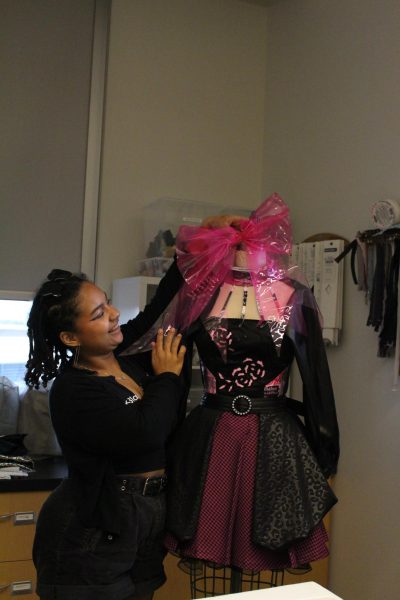
Mosley is one of the six students who helped in the creation of 150 costumes last year.
Excited to inspire and inform, Mosley directs the Loyola Costume Shop Instagram account and hopes to push Loyola’s “fashion forward” students to learn about the department.
Connection to what you wear is crucial to sustainability, according to Mosley, who explains that sustainability starts with something simple: connecting through learning.
“Learn how to repair your clothes. If you’re trying to shop more sustainably, you don’t want to throw away every fast fashion item in your closet. It’s about learning to take care,” she said.
Mosley and Thomassie recommend ricRACK, a textile recycling non-profit that combines creative skill building with environmental responsibility, as an accessible way to learn about caring for your closet.
ricRack, which is on Martin Luther King Jr. Boulevard, was started by costume designers who are aware of how wasteful the film industry is, Thomassie said.
They have thrifted vintage sewing machines and supplies. They also offer affordable sewing lessons and thrifted clothes,” she said.
In addition to tangible learning, Thomassie urges the Loyola community to change their mindset.
“7 billion on the world, think about it. We all get dressed. Every day, we should be aware of what we are putting on our bodies, not just in them,” Thomassie said
There are people behind everything, she said.
“That five-dollar top is not worth more than a human life,” she added. “Valuing humanity is so important. It’s all we have.”
Still, Thomassie remains hopeful because of Loyola’s student body.
“The students are attuned and sensitive to these things,” Thomassie said. “You are students with eclectic styles, who aren’t afraid to bend and break rules. You aren’t afraid to play with them. Whether through gender fluidity, or alternative styles, you are open to expression. That is something special that Loyola has in its back pocket. Your interest is there, now we have to back that interest with information.”


